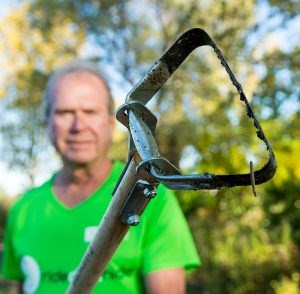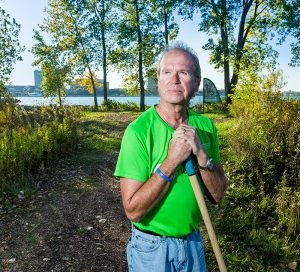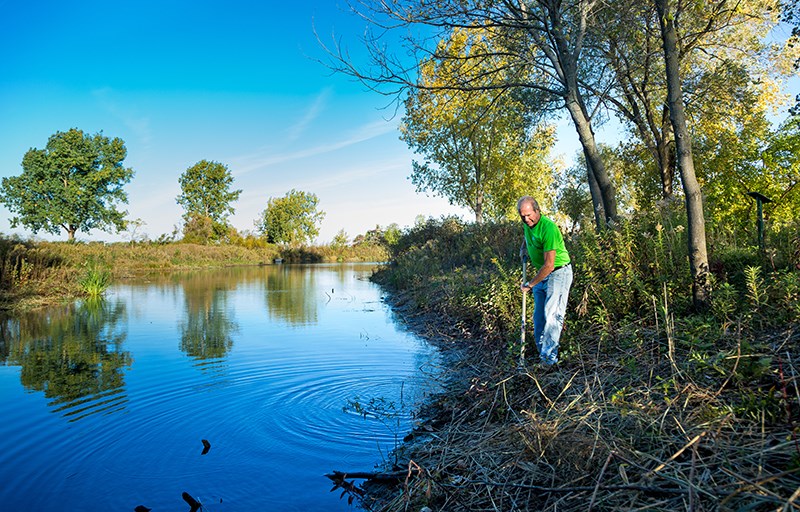Troy Shantz
A Sarnia man has become a one-man army in the battle against invasive phragmites.
Hal Regnier was alarmed to see the invasive reed running rampant on the waterfront Point Lands this summer, a spot he regularly visits while volunteering to walk dogs from the nearby Humane Society.
So he did a little research, obtained the blessing of City Hall, and has been attacking clusters of “frag” with a stirrup hoe.

“It is spreading faster than a politician can talk,” said Regnier, 68, a former process supervisor and industrial fire chief.
“All I can do is give it a shot. One thing I’m going to do, I’m not going to let them go to seed.”
Invasive phragmites is native to Eurasia and grows in wetlands and along shorelines, choking out wildlife by packing up to 200 stems per square metre. The roots produce a toxin that kills surrounding plant life and the heads contain as many as 2,000 seeds.
Regnier has spent about 12 hours on his control project since Thanksgiving weekend and cleared various parts of the Point Lands so far.
He is committed to a two-year term of removal with regular inspections of the site.
All he asked from City Hall was the loan of a pair of hip-waders.
“It is very welcomed,” said Patti Ross, Sarnia’s manager of parks, forestry and horticulture.
“This is a gentleman that saw a need, thought it was something he could deal with, and offered to do it for us.”

Ontario’s Environmental Commissioner has called on the provincial government to do more to help municipalities fight phragmites and other invasive species.
But Regnier said waiting for government funding does little to protect the waterfront from a pressing environmental threat.
He said volunteer time and elbow grease might be more effective.
“I grew up on a farm,” he said, laughing. “It’s not a big deal for me.”
